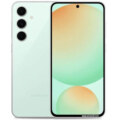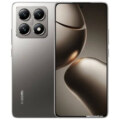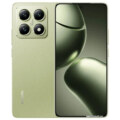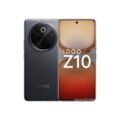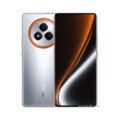- Latest Product
- Product
- Rumor Mobiles
- Xiaomi 17 Ultra
-
Platform: Android 17 , Snapdragon 8 gen6
-
Display: 6.73 inches, LTPO2 AMOLED
-
Camera: 50+50+50+50 MP + TOF 3D and 50MP
-
Ram: 12/16 GB
-
Memory: 256/512GB/1/2TB
-
Battery: 5500 mAh, Fast charging 120W
Rumor New Device
-->Xiaomi 17 Ultra Full Details
Basic info
| Brand | Xiaomi |
| Model | 17 Ultra |
| Category | Smartphone |
| Status | Upcoming |
| Launch Date | February, 2027 |
Network Connection
| Network Type | GSM / CDMA / HSPA / EVDO / LTE / 5G |
| 2G Network | |
| 3G Network | |
| 3G Bands | HSDPA 850 / 900 / 1700(AWS) / 1900 / 2100, CDMA2000 1xEV-DO |
| 4G Network | |
| 4G Bands | 1, 2, 3, 4, 5, 7, 8, 12, 17, 18, 19, 26, 34, 38, 39, 40, 41, 42 |
| 5G Network | |
| 5G Bands | 1, 3, 5, 8, 28, 38, 40, 41, 77, 78, 79 SA/NSA |
| Speed | HSPA 42.2/5.76 Mbps, LTE-A, 5G |
| GPRS GPRS (General Packet Radio Service) is a packet oriented mobile data service on the 2G and 3G cellular communication system's global system for mobile communications (GSM), Generally, GPRS is used for the purpose of wireless data transfer, such as sharing pictures and videos or browsing the Internet via a mobile phone connection. |
Body
| Dimensions | 161.4 x 75.3 x 9.2 mm |
| SIM Card | Dual SIM (Nano-SIM, dual stand-by) |
| Colors | Black, Blue, White, Titanium Gray |
| Build | Glass front (Longjing Glass3), glass or eco leather back, titanium (grade 7) or aluminum alloy frame |
| Protection |
Water-repellent coating |
| Features | IP69 dust/water resistant |
Display
| Display Type Display Technology => A number of display technologies and types used in mobile phones => TFT (Thin Film Transistor), IPS (In-Place Switching), OLED (Organic Light Emitting Diode), AMOLED (Active-Matrix Organic Light-Emitting Diode), Super AMOLED (an even advanced version of AMOLED), Resistive Touchscreen (Resistive touchscreens contain two layer of conductive material with a very small gap between them which acts as a resistance), Capacitive Touchsceen (Capacitive touchscreen technology consists of a layer of glass coated with a transparent conductor) | LTPO AMOLED |
| Size | 6.73 inches |
| Ratio | 20:9 ratio |
| Resolution | 1440 x 3200 pixels |
| Pixel Density Pixel Density (PPI) is refers to the concentration of pixels on a particular display, measured in pixels per inch (ppi). Pixel density is calculated by dividing the diagonal pixel resolution of a display by its diagonal size, higher pixel density better display quality. | 522 ppi |
| Multitouch | |
| Display Protection | Longjing Glass |
| Refresh Rate | 144Hz |
| Features |
68B colors Dolby Vision HDR10+ 3000 nits (peak) |
Hardware
| CPU CPU (Central Processing Unit) mostly known as processors, CPU processes instructions in order to carry out certain functions that make your device operate properly. Processors are often described as the brain of computers, smartphones and tablets, Smartphones and tablets rely on processors to carry out their every task, Processors are an incredibly important factor in selecting any type of computing device, including your smartphone. | Octa-core |
| GPU GPU (Graphics Processing Unit) is a single-chip processor designed to rapidly manipulate and alter memory to accelerate the creation of images in a frame buffer intended for output to a display, This includes things such as lighting effects, object transformations, and 3D motion. | Adreno 780 |
| Chipset Chipset is a group of integrated circuits designed to perform one or a more dedicated functions, often with real time computing constraints, Popular smartphones are equipped with more advanced embedded chipsets that can do many different tasks depending on their programming. | Qualcomm Snapdragon 8 Gen6 (3 nm) |
| RAM | 12/16 GB |
| Internal Storage Internal Storage is a data storage space (flash memory) mostly used in smartphones, tablets and other electronic devices where operating system, apps, music, photos, videos, files and other user data Is stored. | 256/512 GB/1/2TB |
| Memory Slot | NO |
| Version | 12/256GB, 16/512GB, 16GB/1TB, 16GB/2TB |
| Storage Type | UFS 4.1 |
Software
| Operating System OS => Every computer system run on a base software called Operating System (OS). Operating System controls all basic operations of the computer (such as smartphone, PDAs, tablet computers and other handheld devices). The Operating System allows the user to install and run third party applications (apps), apps are used to add new functionality to the device. | Android |
| Version | 17 |
| User Interface UI or user interface of a device is the look and feel of the on-screen menu system. How it works, its color scheme, how it responds to button presses, all of these things are part of the user interface. | HyperOS 4.0 |
Main Camera
| camera |
50 MP, f/1.6 or f/4.0, 23mm, 1.0"-type, 1.6µm, multi-directional PDAF, Laser AF, OIS (wide) 50 MP, f/2.5, 120mm, 1/2.51", Dual-Pixel PDAF (30cm - ∞), OIS, 5x optical zoom (periscope telephoto) 50 MP, f/1.8, 75mm, 1/2.51", Dual-Pixel PDAF (10cm - ∞), OIS, 3.2x optical zoom (telephoto) 50 MP, f/1.8, 12mm, 122˚, 1/2.51", Dual-Pixel PDAF (ultrawide) TOF 3D, (depth) |
| Features | Leica lenses, Dual-LED flash, HDR, panorama, 67mm filter ring holder (optional) |
| Video | 8K-24/30fps, 4K-24/30/60/120fps, 1080p-30/60/120/240/480/960/1920fps, gyro-EIS, Dolby Vision HDR 10-bit rec. (4K/60fps, 1080p) |
Selfie Camera
| camera | 50 MP, f/2.0, 22mm, 0.7µm (wide) |
| Features | HDR, panorama |
| Video | 1080p-30/60fps, 720p/120fps, gyro-EIS |
Multimedia
| Loudspeaker | Yes, with stereo speakers |
| 3.5mm Jack | |
| Audio Features | 24-bit/192kHz Hi-Res & Hi-Res Wireless audio |
Connectivity
| Wi-fi Wi-Fi is a popular wireless networking technology using radio waves to provide high-speed network connections that allows devices to communicate without cords or cables, Wi-Fi is increasingly becoming the preferred mode of internet connectivity all over the world. | Wi-Fi 802.11 a/b/g/n/ac/6e/7, tri-band, Wi-Fi Direct |
| Bluetooth Bluetooth is a wireless communications technology for exchanging data between mobile phones, headsets, computers and other network devices over short distances without wires, Bluetooth technology was primarily designed to support simple wireless networking of personal consumer devices. | 5.4, A2DP, LE, aptX HD, aptX Adaptive, LHDC |
| Wi-fi Hotspot | |
| FM Radio | |
| USB | USB Type-C 3.2, DisplayPort, OTG |
| OTG | |
| GPS | |
| NFC NFC (Near field communication) is a set of standards for smartphones and similar devices to establish peer-to-peer radio communications with each other by touching them together or bringing them into proximity, usually no more than a few inches. |
Security
| Fingerprint | Fingerprint (under display, optical) |
| Sensors Sensors are electronic components that detects and responds to some type of input from the physical environment. The specific input could be light, heat, motion, moisture, pressure and location, The output is generally a signal that is converted to use in computing systems, a location sensor, such as a GPS receiver is able to detect current location of your electronic device. | accelerometer, proximity, gyro, compass, color spectrum, barometer, Two-way satellite communication |
Power
| Battery Type | Li-Po non-removable |
| Battery Capacity | 5500 mAh |
| Battery Charging |
Fast charging 120W Fast wireless charging 100W Reverse wireless charging 10W Quick Charge 4+ Power Delivery 3.0 |
| Fast charging | |
| Wireless Charging |
Price
1. What is the release date of Xiaomi 17 Ultra?
Xiaomi 17 Ultra was release on February, 2027.
. What are the available storage options for Xiaomi 17 Ultra?
Xiaomi 17 Ultra offers storage options of 256GB, 512GB, and 1TB with no card slot for expansion.
3. What are the main camera specifications of Xiaomi 17 Ultra?
Xiaomi 17 Ultra features a quad-camera setup including 50MP wide, 50MP periscope telephoto, 50MP telephoto, and 50MP ultrawide lenses, along with a TOF 3D depth sensor.
4. What is the battery capacity of Xiaomi 17 Ultra?
Xiaomi 17 Ultra is equipped with a non-removable 5400mAh battery.
5. What are the charging capabilities of Xiaomi 17 Ultra?
Xiaomi 17 Ultra supports 120W wired charging with PD3.0 and QC4. It also supports 100W wireless charging. Additionally, it features 10W reverse wireless charging.
6. What are the color options available for Xiaomi 17 Ultra?
Xiaomi 17 Ultra comes in Black, Blue, White, and Titanium Gray colors.
7. What is the price of Xiaomi 17 Ultra?
Xiaomi 17 Ultra is priced at around 890$.
8. What operating system does Xiaomi 17 Ultra run?
Xiaomi 15 Ultra runs on Android 17 with HyperOS 3.0.
9. What are the display specifications of Xiaomi 17 Ultra?
Xiaomi 17 Ultra features a 6.73-inch LTPO AMOLED display with a resolution of 1440 x 3200 pixels, supporting a 144Hz refresh rate, Dolby Vision, and HDR10+.
10. Does Xiaomi 17 Ultra have a headphone jack?
No, Xiaomi 17 Ultra does not have a 3.5mm headphone jack, but it supports 24-bit/192kHz Hi-Res & Hi-Res Wireless audio.
Pros
Cons
You can visit Xiaomi 16 Ultra



